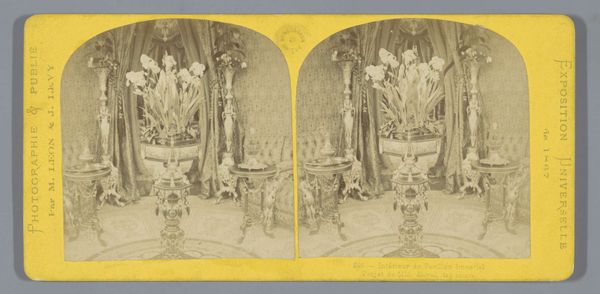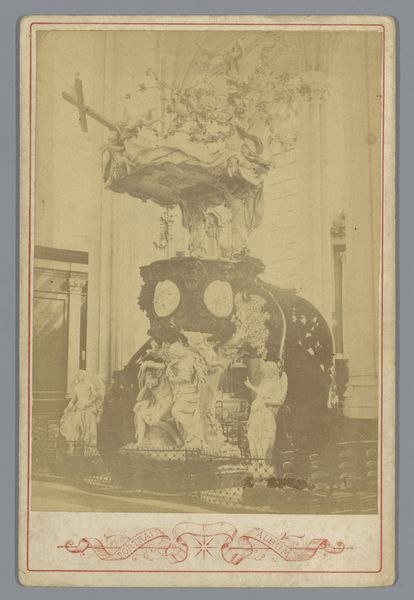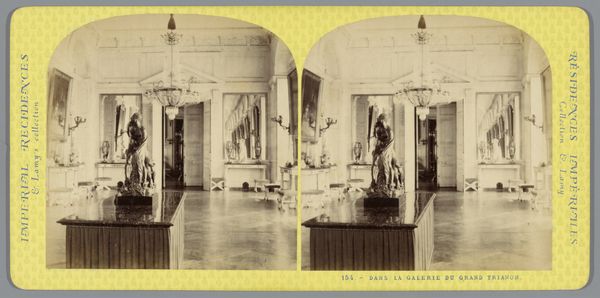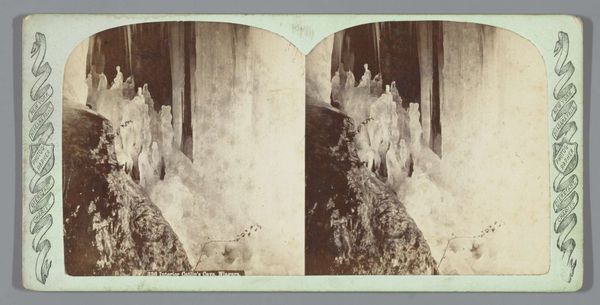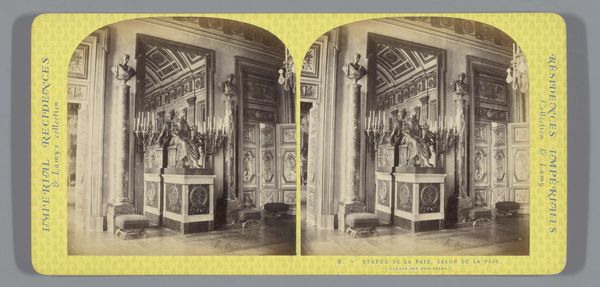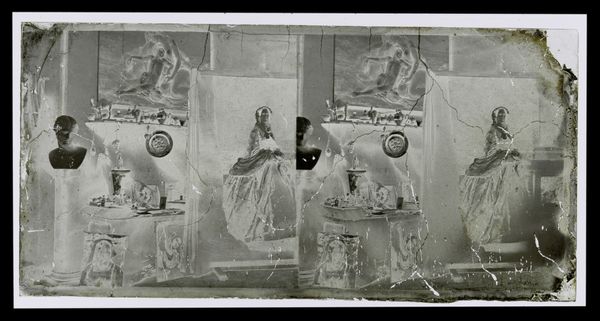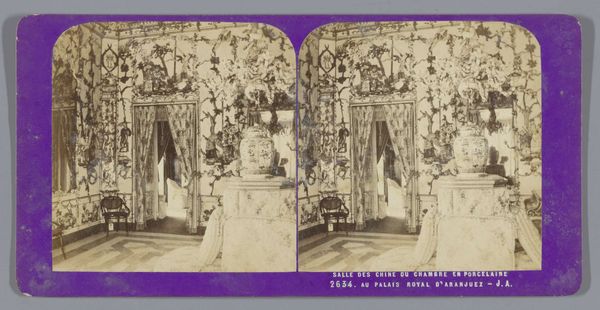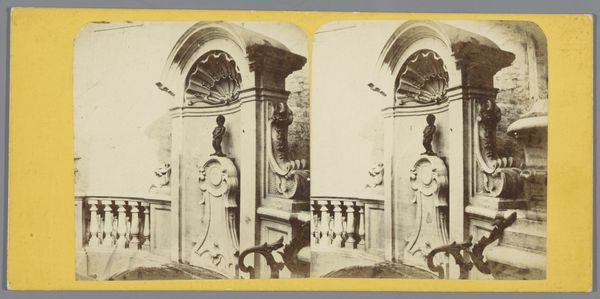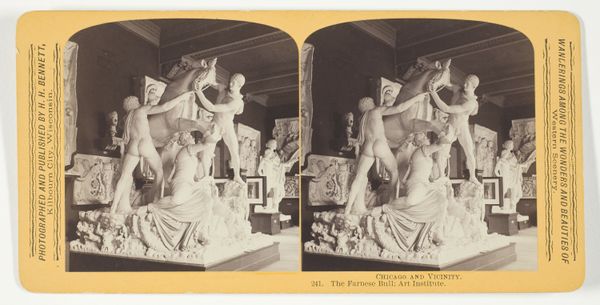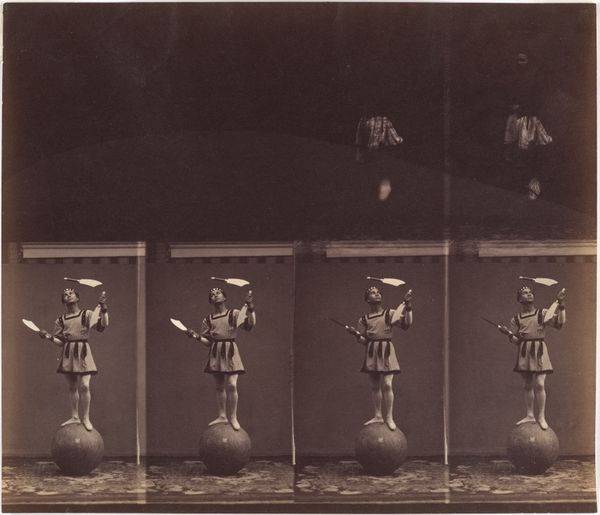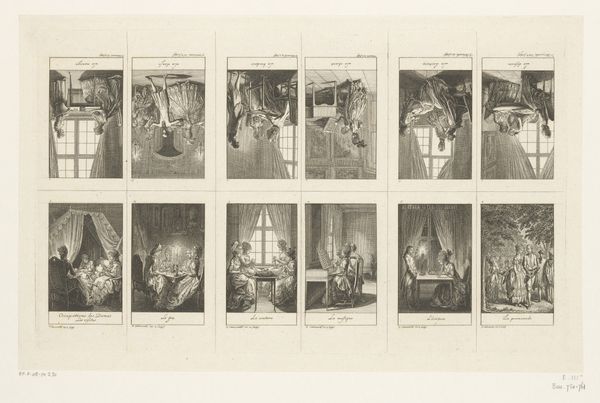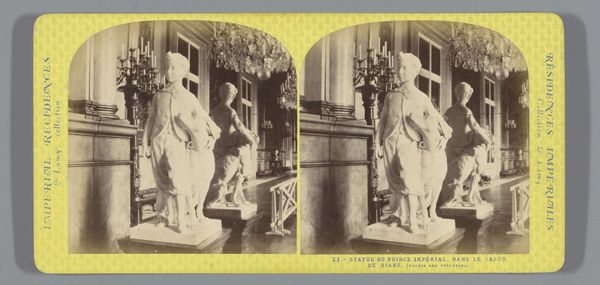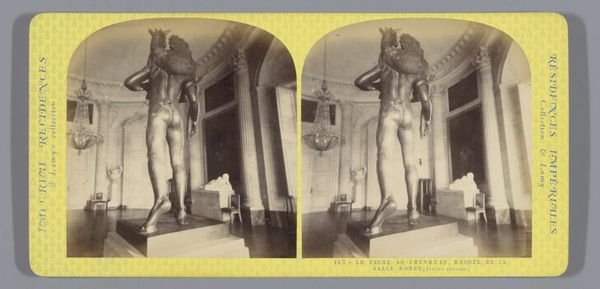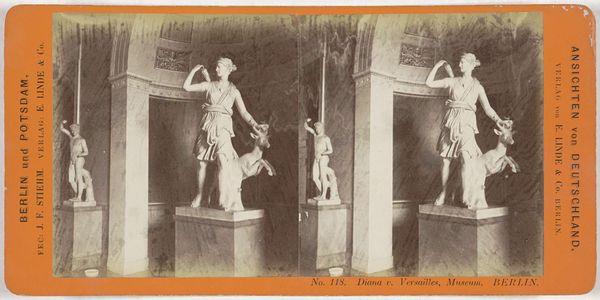
Bronzen beeld in het Grand Trianon, voorstellende Milo van Croton 1860 - 1880
0:00
0:00
print, bronze, photography, sculpture
#
portrait
# print
#
sculpture
#
bronze
#
photography
#
ancient-mediterranean
#
sculpture
#
history-painting
#
realism
Dimensions: height 85 mm, width 170 mm
Copyright: Rijks Museum: Open Domain
Editor: So this photograph captures a bronze sculpture made sometime between 1860 and 1880. The sculpture’s called "Milo of Croton," by Ernest Eléanor Pierre Lamy. The scene feels dramatic, almost frozen in a moment of intense struggle. How do you interpret this work, considering it's based on an ancient story? Curator: The figure of Milo, rendered in bronze, is immediately evocative. Consider the weight he bears, not just the literal burden on his shoulders, but the symbolic weight of strength betrayed. The fracturing of the self, represented by the failing grip on the bull, speaks to the inevitable decline that even the mightiest must face. It's a classic Greek tragedy—hubris followed by downfall—yet recast through a 19th-century lens. What emotional register does the choice of bronze contribute, do you think? Editor: It gives it this timeless quality, almost immortalizing him. But then, knowing the story, it adds this layer of irony, because he's so far from immortal in that moment. Curator: Precisely! The bronze, meant to immortalize, instead captures the instant of vulnerability. Doesn’t the choice of the ancient subject – and its revival in the 19th century – echo broader cultural anxieties and obsessions with the past? We find meaning in ancient myth, while acknowledging we’re constantly interpreting its echoes through time. The tragedy persists, remade again and again. Editor: It makes you wonder what future generations will see in our stories. Thanks for sharing your thoughts! Curator: A powerful reminder of our shared, if constantly shifting, humanity. My pleasure!
Comments
No comments
Be the first to comment and join the conversation on the ultimate creative platform.
